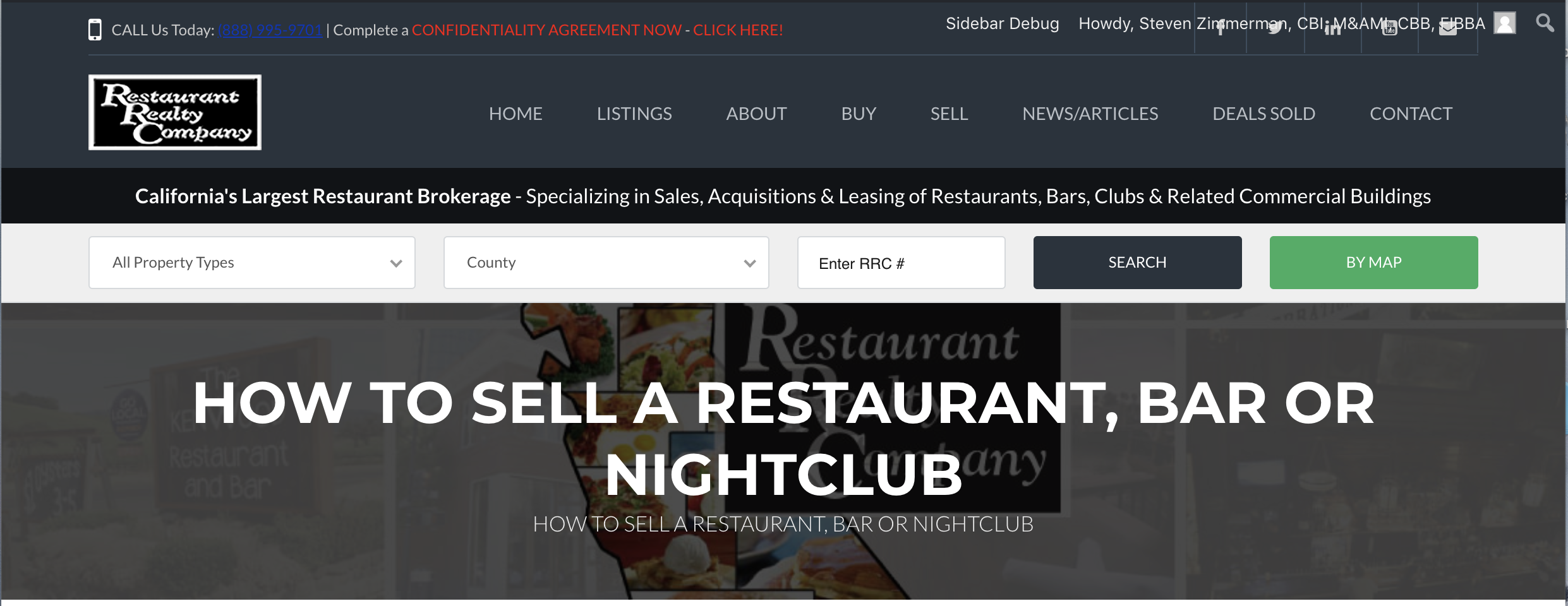Restaurant Realty Company serves specific client needs in the sale of small to medium priced, privately held businesses up to $25 million in Sales price. The client’s confidentiality is fully protected while all phases of the marketing cycle are being conducted. Restaurant Realty Company provides the skills necessary to market the business and negotiate sales terms and conditions, including, but not limited to the following activities:
Valuation
Develop a target price which optimizes return to the client and which identifies a financing format for the buyer. This format is designed to meet the requirements of the client and to insure maximum safety for both the buyer and the seller throughout the financing term. Restaurant Realty Company provides comprehensive appraisals as well as letters of opinion regarding valuations.
Packaging
Prepare a complete descriptive financial and market profile created to represent the business to potential buyers. This package is used to market the business without compromising the confidentiality of the sellers. These portfolios are provided for the benefit of both buyers and seller and for the escrow process.
Marketing
An active network of potential buyers is utilized to pinpoint qualified prospects capable of acquiring your specific business. The technique utilized is to first identify, then screen potential buyers to verify financial strength and applicable business experience. This program endeavors to match fully qualified buyers with the business for sale prior to disclosure of any confidential information.
Negotiation
The service provided includes negotiation of all sales agreement terms and conditions and preparation of proper documentation to meet the requirements for legal completion of the transaction. Each step of the offer, escrow and bulk sale procedure is carefully supervised to warrant that all of the requirements of the sales agreement are implemented in a concise manner.
11 Points to Keep in Mind when Selling Your Own Business
- Price realistically. Don’t overprice or underprice your business. If you price it too high you will scare away qualified buyers. If it’s overpriced, many buyers will not make you an offer for fear of offending you. The longer the business is on the market the greater the chances of your employees, suppliers or customers finding out. Look for comparable sales and price your own business within that range.
- Prepare a business offering package. Include the information that buyers need to see; i.e., leases and profit and loss statements. Buyers will lose enthusiasm if they have to wait for items to be produced.
- Bring the deferred maintenance up to date prior to putting the business on the market. When buyers see items that need fixing then they often wonder about the condition of things they can’t see.
- Prepare a purchase agreement form prior to finding a buyer. Then you can fill in the blanks when you have a deal. Attorneys are sometimes very slow in putting agreements together and the buyer’s enthusiasm may evaporate if the purchase is delayed.
- Look for a buyer in as broad an area as possible. Don’t depend only on you local paper to produce all the leads. Only a fraction of the potential buyers are reading that paper at any particular time. The way to get the optimal price is to have as many qualified buyers as possible.
- Qualify the buyers right away. You need to know about their financial strength and business skills before you give out confidential information on your business or spend a lot of time with them.
- Make sure your location and equipment leases are transferable before you took for a buyer.Many, many potential sales have blown up because lessors refuse to assign a lease. If your remaining lease term is short, negotiate a new lease prior to offering that business for sale.
- Agree on a sales price and terms with the purchaser prior to providing access to your financial records. It is extremely important that the buyer have ample opportunity to examine all aspects of your business and all disclosures are made. These steps are to protect both buyers and sellers and avoid all lawsuits.
- Make sure that every agreement of the transacting is clearly stated in writing, including all contingency removals. People quickly forget what was said and not written which frequently leads to arguments and then lawsuits.
- Require a substantial deposit when you have reached an agreement with a buyer. The deposit should be held by a neutral escrow holder in order to limit your liability.
- If you are financing part of the sale, be sure the correct procedures are followed in order to protect your note. These include filing of a UCC-1 statement with the State of California, suitable promissory notes, security agreements, etc.


